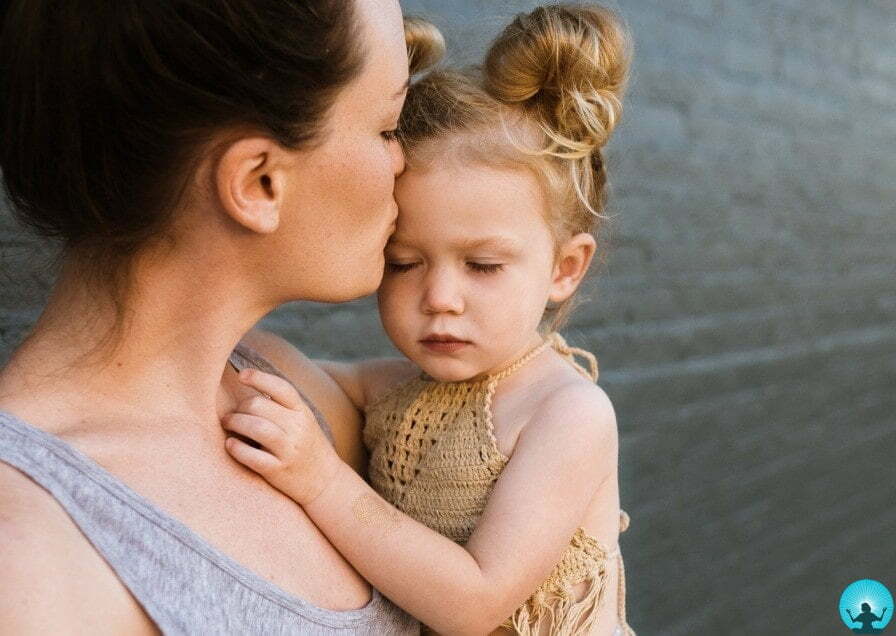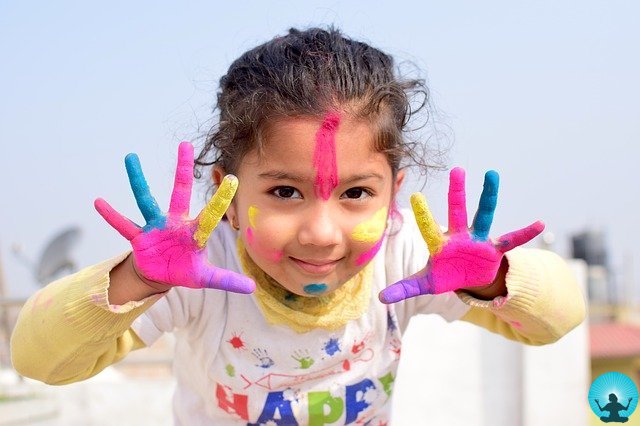The most precious resource for parents in this world is their children. So as a parent, your mind will be relaxed only when your children grow up very well. That mater affected directly or indirectly your children’s future.
As long as we’ve loved our children, it’s only natural that they’d want the same for themselves. Everyone’s life objective is to have self-confidence and feel at ease in one’s skin. You may stop dealing with your children’s problematic behavior to avoid damaging their self-esteem if you make encouraging these attributes your top priority as a parent.
Sometimes when our children are 18, we have to abandon them. For that reason, we should have made them good citizens. If not, that issue will affect our children for a lifetime and us.
One of the essential things we can do for our children is to teach them how to interact with others. They must be aware of the impact their activities have on others and the kinds of behaviors that are acceptable and unacceptable. Moral growth necessitates the ability to feel bad about one’s actions.
Nowadays, our society is deteriorating daily, so we should grow our children with self-esteem and discipline. We should be given the freedom to our children to get their directions and choose, but we have to pay attention to their activities, plans, and friends. That is our responsibility and duty. Here are the answers to How to build children’s self-esteem through discipline.
Build children’s self-esteem through discipline

01 Explain kindly and lovely about your child’s misbehavior
Sometimes Child gets Upset When We Point Out Their Misbehavior. Self-esteem issues and sensitivity are common among some children. The conventional wisdom is to focus on a child’s behavior rather than the individual child. Yet, most children aren’t able to tell the difference. Adults can reason, “I did one awful thing, however overall, I’m a really good guy.” A child’s mind is a simple black-and-white one. Because of the guilt, they experience when they are faced with their actions.
How can I manage a Situation with tolerating my child’s misbehavior?
Step 1
Explain why they acted the way they did. An excellent way to begin is to remark, “I understand that you had been trying to” or “I know that you didn’t mean to.” You’re letting them know that, despite their mistakes, you still believe they’re a decent young man with good motives.
Step 2
Explain to them how their actions harmed others. Say, “Your brother’s arm pained a lot when you punched him.” Not convincing them of their badness can make your message any clearer.
Step 3
Continue on your path. Because kids can’t reverse their mistakes, we would not want to leave kids feeling horrible about themselves. For example, “What should I do to make my brother happy?” can assist your youngster in coming up with a plan for setting things right.
Depending on the circumstances, you may be able to offer suggestions for how to make amends. Cleaning up or undertaking a task like sorting recycling might all fall under this category. In the wider definition, if your child has done something to harm the family, they will do something to support the family. Let them understand you appreciate when someone goes out of their way to make things right.
02 How can I nudge my child to find better solutions?
A conversation wherein you identify the problem by adding “On the one hand… but on the other hand…” and then urge your child to come up with various solutions is helpful if there is a situation that your youngster frequently finds problematic. You can feel your child’s brain develop as soon as you offer the scenario in terms of two viewpoints. They’re going beyond just saying “I want” to include other points of view.
Your kids can understand to generate and develop ideas with your guidance and patience. As a parent, you can then respond, “Wow! Your approach truly worked.” Knowing you’ve solved a challenge gives kids a sense of accomplishment and self-confidence.
03 How to think & teach to boost your child’s Low Self-Esteem?
Parents experience terrible suffering when their children criticize their appearance. When we see this, we can’t help but want to dive right in and let them know how much we appreciate them. Contrary to popular belief, the evidence does not support the idea that happy youngsters are those who have a positive self-image.
To put it another way. Children who have poor self-esteem are miserable and more likely to suffer from depression. A child may avoid new experiences or socialization because they fear they won’t fit in because they believe they won’t be good at them, and this can be a self-fulfilling prophesy. They could also take things too far and strive for perfection to the point that nothing is always good enough for them.
Suggested Relax Log: How to child study with relaxation techniques
According to research, over-the-top praise has been shown to backfire, and stronger self-esteem has been found to be unrelated to academic performance, better relationships, or perhaps even happiness. A parent’s best efforts to instill confidence in their child may only serve to reinforce their self-doubt and fear that they will fall short of your expectations. Instead of convincing our children that they are lovely, we should assist them in building deep friendships and real competence.
This problem can’t be solved by teaching your youngster how to improve their self-esteem, so they don’t become bogged down in self-centeredness. These days, people are under a lot of pressure to take care of their image and also how they come across. A healthy sense of self-worth comes from letting go of the doubt that haunts us all: “Am I good enough?” Take a moment to imagine yourself with a good friend. You’re not trying to figure out if they like you. Whether it’s a new acquaintance or the chance to learn more about a topic that interests them, our goal is to help youngsters find a way to connect with something bigger than themselves.

04 Try to convince your kids to do confidently than win
Confidence is the key to successful any work. So that you should teach your children’s do their activities with confidence without pressuring about success and winning. Your kids are always doing good things after teaching this lesson well. This is the best way to increase your child’s self-esteem and discipline.
The unfortunate reality is that some children are ready to downplay their successes. They’ll point out the flaws in their performance and claim it wasn’t very good. According to one study, people with poor self-esteem experience more anxiety following a win than following a loss. They’re afraid they probably wouldn’t be able to do that again or that others will demand more of them.
By being a “biased biographer,” you can help your kid feel more confident. Tell them stories of victory over adversity that will inspire them. For example, you could remark, “I remember when you were initially starting to ride a bike and falling over and over, and now see at you, now you’re able.” That is the lesson about confidence than winning.
05 How do when my kids won’t do what I ask capable?
First and foremost, be sure that your goals are attainable. Even if you think your child should act in a specific way, you must deal with the kid you have in your care. It’s time to change tactics if you’ve been asking them to get ready to go to bed and they’ve only taken one sock off every night after 30 minutes. It doesn’t matter if most children their age can just get ready for bed on their own or even if their little sister is capable of doing so. To me, a realistic expectation is something our children can do most of the time or just a little bit more.
06 Motivate & guide kids to behave well
Make sure they understand that they can please you. Please make a point of praising them for their hard work and achievements. One of the most compassionate things you can do for your children is erasing their memories of their past wrongs. You have no business bringing up anything your kids did last month when they are growing and changing at such an incredible rate that it is pointless.
Alternatively, you can comment about how they’ve changed or evolved: “I think you and your brother did a great job of figuring out how to share your back seat. “You helped the new kid at school learn how to use the computer” or “You are getting better at negotiation and compromise.” Seeing a need and stepping in to help others is what you’re developing into.”

Bonus tips
Tips for building a child with goodwill
- Teach children humanity from an early age. In the future, they will be human beings who know humanity.
- Teach emotions that are essential to life, no matter how rich they may be. (Like kindness, mercy) He will be a man who enjoys life, whether rich or not.
- Spend time with them no matter how busy you are. The time they spend with you as an adult will bring a smile to their face.
- Keep fond memories of their parents in their minds. Because of the loveliness of those memories, they will set aside some time for you in the future.
- Teach them to set goals for themselves and slowly reach them instead of always beating others, getting more marks than their peers in term exams, and always being the first to compete and win with others.
- Teach them to donate and share as much as possible. Practice those things in practice. Then in the future, they will not become miserly even if they do not give even five cents to their parents.
- Remember to Love to feel the children. Love the love for the children so they can feel it in their hearts without being trapped inside. They will be loving people who know the value of love in the future.
- Live with important parents. Do not give unnecessary weight to the children’s minds by talking in front of the children about the quarrels and mismatches in the personal life of the parents. Do not stress them mentally. Then they will get along without stress.
- Allow children to make decisions in their lives as they get older. Please do not jump into the middle of their lives without the special request of the children.
- Teach them whatever religion they believe in as their wish.
- If you want to close your eyes to comfort, as a parent of a loving child who knows how to live happily, instead of emotionless robots who only run after piles of money, teach your children good things without delay.
Useful links
9 Ways to Build More Self-Esteem in Your Child
“ Take a breath well & find your relaxation“



